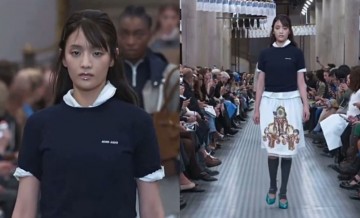A contentious post on the online forum Nate Pann has set off a heated discussion within the K-Pop community. Shared on April 14, 2024, the post swiftly gained traction, garnering over 111,000 views in a single night.
The author expressed a bold opinion, suggesting that HYBE, a prominent entertainment company, is undermining the essence of K-Pop.
Erosion of Traditional Standards
Traditionally, K-Pop was renowned for its rigorous quality standards, where only the most refined talents debuted after years of intensive training, but then they made Wonhee appeared on R U Next? after just weeks of practice.
i really didn't want her to debut in this group but she's a minor really don't wanna hate or say bad things about her. let's not hate and if we don't like, just ignore. i'm still disappointed about this show but trying hard to stan and love all of them, wishing the best for them
— güllü 🗝️ (@usergullu) September 2, 2023
However, the post argues that this tradition is fading, with companies like HYBE allegedly prioritizing quantity over quality.
going back in time to stop genshin from releasing their kazuha chara before le sserafim's debut so kazuha isnt the face of bad ig usernames https://t.co/Q5VDgmVlUd
— loraine (@H0NEYW0RKS) January 14, 2023
It highlights instances where trainees debuted with significantly shorter training periods than historical norms.
The post accuses HYBE of expedited debuts for trainees and relying excessively on its association with globally successful groups like BTS to bolster the reputation of its newer idol groups-a practice colloquially referred to as "media play."
Overwhelming Support and Concerns
The sentiment expressed in the post resonated strongly with many netizens, evidenced by the overwhelming support it received, including over 1523 upvotes and numerous concurring comments.
hybe is the reason for kpop industry’s downfall
— haui (@lilacbaekho) February 28, 2022
Concerns extend beyond talent quality to broader issues such as the commercialization of the K-Pop industry and its impact on stock values.
HYBE finally destroying kpop for good WE CHEERED !! https://t.co/7FMjYmRqGg
— Blitz 💓 (CLOSED/MOVED ‼️) (@yoongischoppa) February 28, 2022
Recent events, including LE SSERAFIM's criticized performance at Coachella, have intensified scrutiny of HYBE's practices.
i was mostly sad at how the coachella stage complimented none of le sserafim's strengths like creative choreography and set design pic.twitter.com/YZ9OR0u6ZG
— َ (@hagnugu) April 14, 2024
The perceived decline in quality and the company's transition into a conglomerate have further fueled suspicions among critics.
Fr i was expecting them to have more of a set and more dancing but hybe is a failure
— cat (@deardives) April 14, 2024
Uncertain Future for K-Pop
As discussions continue within the K-Pop community, questions linger about the future direction of the industry, particularly the role of major entertainment conglomerates like HYBE.
y’all were just stupid and jumped to conclusions not bc you were worried but bc you wanted a chance to feed your Hybe destroying kpop narrative. it’s okay to admit it and take your lashings in silence 😭 https://t.co/1s0SmStteC
— 🐻❄️⁷ | (@userbfIy) December 31, 2021
Whether these criticisms will prompt meaningful changes or deepen existing divides remains uncertain. However, one thing is clear: the debate over the integrity of K-Pop is far from over.
“you’re being rude” no you’re just embarrassed LMAOOOO.
— 🐻❄️⁷ | (@userbfIy) December 31, 2021
KpopStarz owns this article.
Written by Cassidy Jones
















